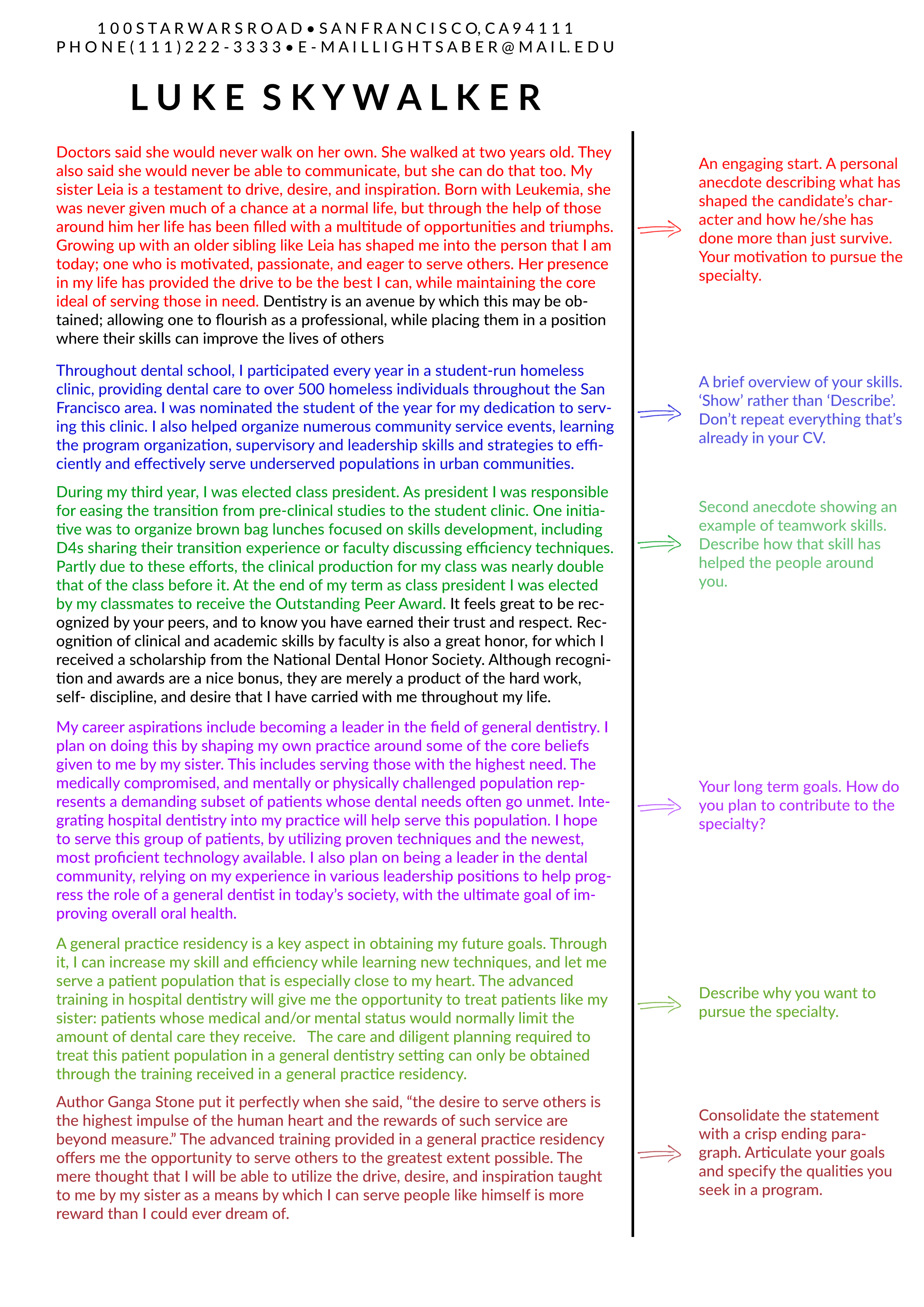According to a survey by NRMP (National Resident Matching Program) in 2014, a residency personal statement holds the most significant percentage of 78% in deciding whether the directors would want to interview a candidate or not. This is one of the most obvious proofs that your personal statement is the document could make you stand out as an applicant!
This article is for those of you who are applying or are prospective applicants of a residency program. In this article, you will get to know the importance of your personal statement, tips on how to write it effectively and additional information on what to avoid followed by a dissected example.
Residency programs usually have a lesser number of seats in comparison to graduate programs; hence, it is imperative to make a ‘statement’ with your well-crafted, crisp and organized personal statement.
What is a residency personal statement?
Personal statement /application essay/statement of purpose is a reflective essay explaining why you are a perfect fit for the program you are applying for. It is a crucial component of your application reviewed by the residency directors to gain more knowledge about you, which would interest them to meet you in person. It gives you a chance to describe your professional aspirations and what motivates your career choices.
The must-haves of a residency personal statement
A general overview of what residency directors want to know:
- What motivates you to make a career in the chosen specialty? Your story should be realistic and reflect on why you made that exact choice.
- What qualities and skills are you bringing to the table? Include clinical, research, leadership skills, etc.
- What sort of a professional would you want to become? In here, you discuss your long-term plans.
- What are the unique attributes that would help you succeed?
- How well do you perform in teams? ‘Show’ rather than tell. Give an example of your co-operation with others.
What should a personal statement contain in general?
- An engaging introduction. It shouldn’t have to start with the typical why you chose medicine as a profession
- Use a narrative. Choose a theme. It is better if your statement is in a thematic fashion rather than a chronological one. Universal themes like wanting to help people, generally make the reader lose interest.
- Make it as personal as possible. Two to three anecdotes that helped you develop your acumen towards the field.
- Consolidate it. Unrelated and unimportant details make it difficult to understand your theme.
- A cohesive closing paragraph
What to avoid in a personal statement?
- Bad grammar and poor flow. Grammatical errors and typos indicate carelessness and a lack of interest.
- Avoid controversial topics. Don’t include any religious or political statements.
- Pretentious quotes and other gimmicks.
- Stating the obvious. Focus on the specifics and write only what is genuinely important to you mentioning about it in depth. Don’t make your essay fluffy. Don’t repeat what’s already in your CV.
- Unremarkable experiences and interests
- Bragging and arrogance
Here is a dissected example and a template for writing a personal statement for residency from UCSF.

In the end, your sincerity should shine out through the specific examples or events that you have conveyed in your residency personal statement.
There is no such thing as a ‘perfect’ personal statement. Read relevant samples and keep noting what intrigued you about that statement. Your first draft is going to be the toughest to write; revise it multiple times and keep on adding the pertinent and deleting the unimportant. A peer, proofreader or an editing service could give you valuable perspective and tips on how to improve.
The sooner you start writing, the better it is!
What difficulty concerns you the most when writing your residency personal statement? Let us know through the comments section below, and we will be happy to guide you!






